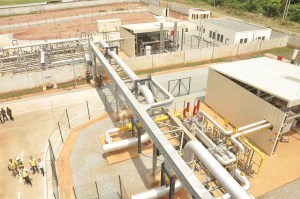The Nigerian Senate is set to review the Brass LNG project and the management of the Nigerian National Petroleum Corporation (NNPC). The project was awarded US $18bn about 15 years ago.
These resolutions of the upper chamber surfaced in a motion titled: “The need to ensure immediate review of the Brass LNG Project in Brass Island, Bayelsa State” from the Senator representing Bayelsa East, Biobarakuma Degi-Eremienyo among 26 other senators of the National Assembly.
Reason for review
Degi-Eremienyo in his lead debate stated that the project had consumed about US $1.2bn as of 2011, covering early site works and maintenance after which it was abandoned. “The Brass LNG is a greenfield project established to operate the LNG by four shareholders according to the agreement signed in 2003; the NNPC with 49% shares while Conoco Philips, Total and ENI International with 17% shares each,” he said.
He further mentioned that the Federal Government conceptualized and eventually brought to stream the LNG project that was designed to convertible to the huge gas resources being wasted through gas flaring. “The idea behind the project was to eliminate negative environmental impact and to essentially generate revenue for faster economic growth and development,” he added.
Also read:Nigeria to begin rehabilitation of four oil refineries in 2020
Benefits of the Project
According to Degi-Eremienyo if the project is eventually revived, the activities of the LNG project would attract local and multi-national companies, which will enhance the socio-economic development in Brass Island and increase foreign exchange earnings for the country. The Brass LNG project is expected to create about 10,000 jobs when fully operational.
Furthermore, he noted that the Brass LNG will also actively promote local content, sustainable development and make strategic investment in remote areas in line with the federal government policy of developing and monetizing some of Nigeria’s abundant gas reserves that would otherwise remain untapped.
The Senator stated that the project had suffered several setbacks leading to unnecessary delays in the signing of its final investment decision, FID, which he claimed led to the dis-investment by two shareholders, the Conoco Philips and Total, leaving only NNPC and ENI International on board.

Leave a Reply